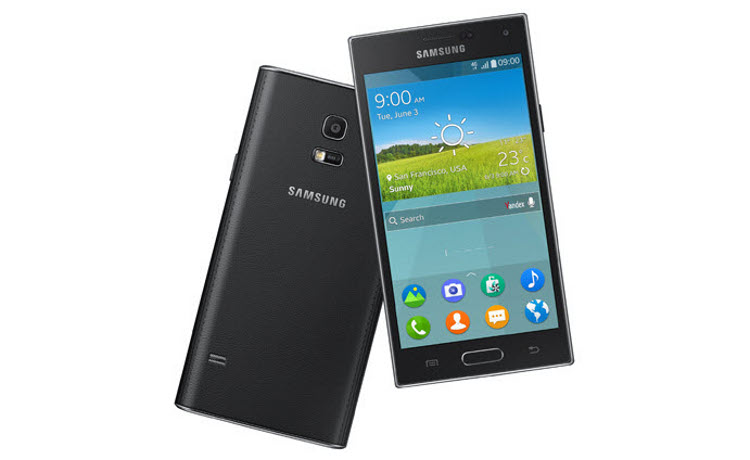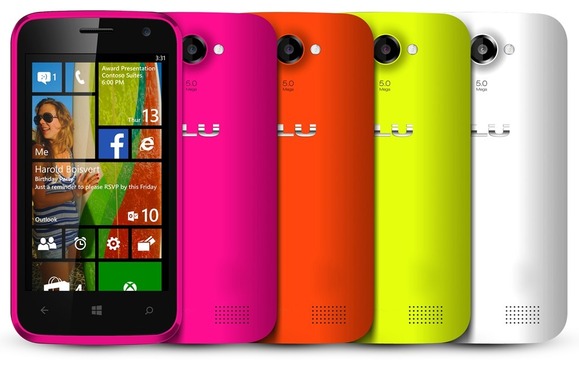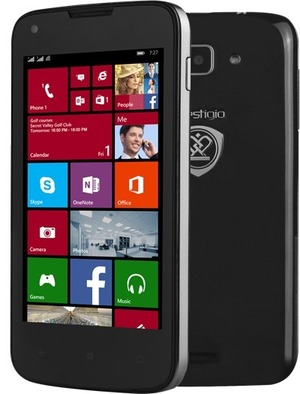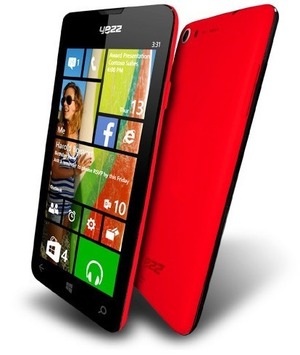Samsung, BLU, Prestigio, YEZZ and Others Announce Non-Android Phones
posted Saturday Jun 7, 2014 by Scott Ertz
It is no secret that Android has seen a lot of commercial success over the past few years. A big part of that success has come from the perceived low cost of manufacturing an Android-powered device. Unfortunately, Google's mistreatment of others' patents has made the per-device cost pretty steep. For some manufacturers, they could pay upwards of $15 per device to license patents that Google has violated.
This is one of the main reasons we have seen companies searching for an Android alternative. Combine that with the shifting sands that are Android's manufacturing rules and regulations, and you'll find an immediate need for manufacturing alternatives. This week we got to see how manufacturers, both big and small, are responding to the Android issue.
Samsung
First we have Samsung. Samsung, whose smartphone business has been built on the back of Android, has been unhappy with the platform for a while. They have been working in-house on their own operating system, Tizen, which has been released on several devices. None of these, however, has been a Samsung smartphone. All of that changed at Samsung's Tizen developer conference, where the company has announced their first Tizen-powered smartphone, the Samsung Z.
On the outside, the device is classic Samsung: big screen, great camera and their iconic physical home button, which they currently use on both Android and Windows Phone devices. In fact, a casual look at the handset would lead you to believe it is one of their flagship Galaxy handsets. You wouldn't be far off, with the device having many of the Galaxy S5 features: fingerprint sensor, heart rate monitor, 2.3GHz Qualcomm Snapdragon processor, an 8-megapixel camera with LED flash, etc.
The big difference here, of course, is the operating system. However, if you are a Samsung fan, you might not notice too many visual differences. That is because the TouchWiz interface that Samsung uses on their Android phones is designed by them, as is Tizen. With this, Samsung has made the transition from Android to Tizen fairly seamless for users.
Hit the break for a photo and some of the other manufacturers ditching Android.
Not everyone has the resources to create their own operating system, like Samsung. Also, not everyone has the resources to take a risk on a completely unknown platform. That is the scenario where we see Microsoft making strides, by bringing in a number of new hardware partners for Windows Phone. While the platform may not have a huge global marketshare right now, it has certainly proven itself as the viable third contender in the space.
BLU Products
BLU Products, headquartered in Miami, is known for their low-cost handsets, both in feature phones and Android smartphones. A lot of their market is South America or prepaid, meaning the margins won't be huge. Because of this, BLU is launching a pair of Windows Phones, taking advantage of the new license-free model. The handsets look to take some inspiration from both HTC and Nokia, the two biggest players in Windows Phone today.
The physical devices look a lot like the HTC 8X, including placement of the rear speaker. They use physical, capacitive buttons, as opposed to the newly available on-screen buttons in Windows Phone 8.1. Their coloring, on the other hand, is taken right from Nokia's playbook. Available in bright pink, orange, lime green and white, BLU is definitely betting on the customization crowd that currently enjoys Windows Phone.
Prestigio
Prestigio, whose logo looks like something you would find on a racecar, was announced at //build/ as a new hardware partner for Microsoft. They showed off their European-bound MultiPhone 8500 DUO and MultiPhone 8400 DUO handsets at Computex. With a 5 inch and 4 inch display, respectively, the handsets have quad-core processors, 8MP cameras, IPS displays and dual SIM capabilities. They should be available starting in July and August.
YEZZ
YEZZ has really gotten into the spirit of working with Microsoft, announcing a pair of handsets they are affectionately calling Billy, after Bill Gates. The devices, which should be available in the US, as well as other markets, will be fairly inexpensive, despite their really interesting design. The Billy 4.7 will run $249 and the Billy 4.0 will run only $139. That puts the handset into the Nokia Lumia 520 price range, adding some real competition for smartphones in the world of pre-paid.
Others
Wistron announced the largest of the lot, showing off a full HD, 6.5 inch screen prototype. Compal, who has released phones as Nokia, also has a Windows Phone in the works. The more shocking semi-announcement,, which might show their Samsung-like intentions, is from Microsoft themselves about HTC. Nick Parker, VP of OEM Partners, said HTC was working on something new. We assume this to be the Windows Phone variant of the HTC One M8.





